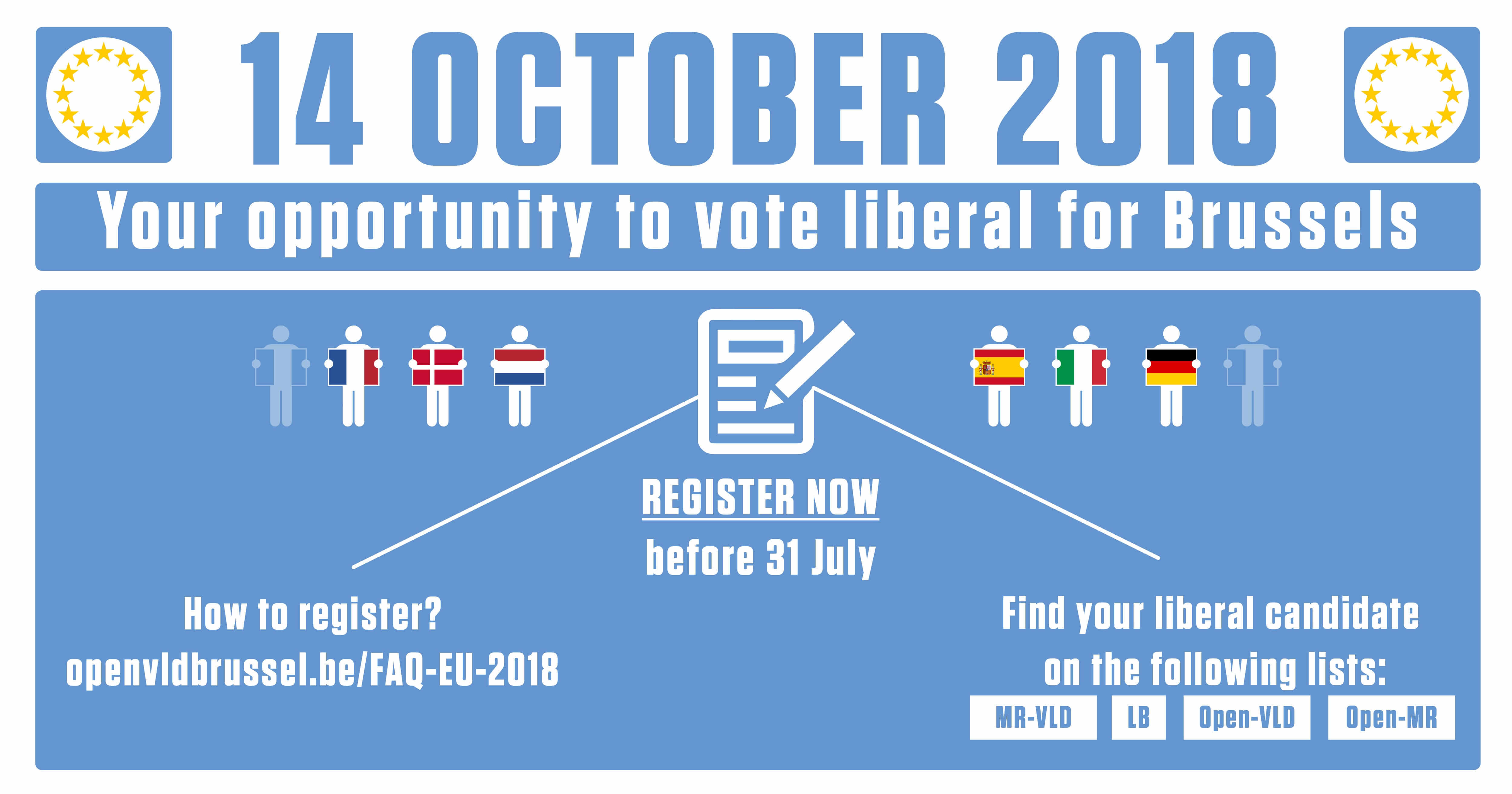FAQ EU 2018 (English version)
Voor de Nederlandse versie, klik hier.
Pour la version française, cliquez ici.
Für die deutsche Version, klicken Sie hier.
Contents
1. EU and non-EU citizens
2. Voter registration
3. Voting rights in native country
4. Registration for the European elections and for the municipal elections
5. Validity of the registration in time
6. Voting rights / Compulsory voting
7. Removal from the electoral roll
8. Registered but absent
9. Procuration
10. Other questions?
1. Who is allowed to vote?
The person who:
- has the nationality of one of the EU member states;
- resides in a Belgian municipality and who is registered in the citizen’s register or foreigner’s register of the municipality in which he or she resides, at the last on August 1st, 2018
- is at least 18 years old on October 14th 2018;
- is registered in the electoral roll on July 31st 2018.
Non-Eu citizens can also register in the electoral roll if they have resided in Belgium for at least 5 years and subscribe to a statement of democratic principles. This statement can be found on the registration form. (Look at point 2 for the two models.)
2. How can you register in an electoral roll?
To be registered in the electoral roll of the municipality you have to fill in a registration form. You can download the form through the next links:
The filled-out form has to be submitted to the municipal government by July 31st 2018, at the last. This can be done both personally or by mail. The registration is free of charge.
3. Do I lose my right to vote in my native country?
No. Participating in the municipal elections in Belgium does not mean that you lose the right to vote for parliamentary elections, European or regional elections in your native country.
4. I am already registered for the European elections. Do I have to register again to be able to participate in the municipal elections?
Yes, the registration process for the European elections and for the municipal elections are completely separate. This is because it is forbidden to vote in the European elections in two different countries. So, you can choose to be registered to vote for the European elections in your native country (through your embassy), but still vote for the municipal elections in Belgium.
5. I have already registered in 2012 or earlier for the municipal elections in Belgium. Do I need to register again?
No, your inclusion on the electoral roll remains valid as long as you are eligible to vote and do not renounce your voting rights. This means that once you are accepted on the electoral roll, it is no longer necessary to register again for the next municipal elections, even if you have moved to a different municipality.
6. I am registered. Am I compelled to vote?
Yes and no. Belgium is one of the rare countries in which there is compulsory voting (or rather: obligatory attendance). This means that, in principle, everyone who is entitled to vote has to go to the electoral bureau In practice, 15% of voters usually doesn’t go to vote. For the last 20 years, there haven’t been any consequences attached to this.
For non-Belgians, there is a possibility of renouncing your voting rights. See point 7.
7. How can I renounce my voting rights and be removed from the electoral roll?
To get removed from the electoral roll, it suffices to give a written declaration to the municipality that you want to renounce your voting rights.
8. I am registered, but I am unable to vote on election day in Belgium. What can I do?
You can simply vote by procuration. Read more on this in point 9 and do not hesitate to contact us. We will gladly help you.
9. Procuration; who and how?
A. Who can have someone vote for him or her by procuration:
- the person who is abroad for professional reasons or who is unable to present herself or himself at the day of the vote in the electoral bureau (on the basis of a certificate from the employer)
- a sick person (on the basis of a medical certificate)
- students (on the basis of a certificate from a school or educational institution)
- a person staying abroad (on the basis of a certificate from the municipality, after presenting proof of the journey – application form NL - FR)
B. Who can vote with a procuration?
The procuration has to be given through a standard form which can be downloaded for the 19 Brussels’ municipalities here (NL - FR). The form has to be signed both by the person giving the procuration as by the one receiving it.
10. Any more questions?
If you can’t find an answer to your question, do not hesitate to send it through e-mail: info@openvldbrussel.be. We try to help you as well as we can.







